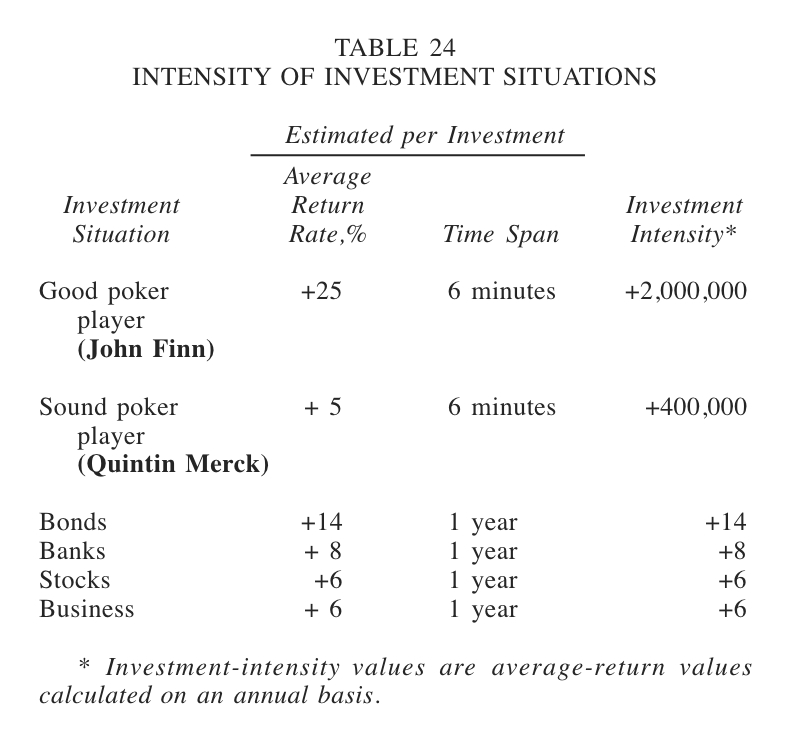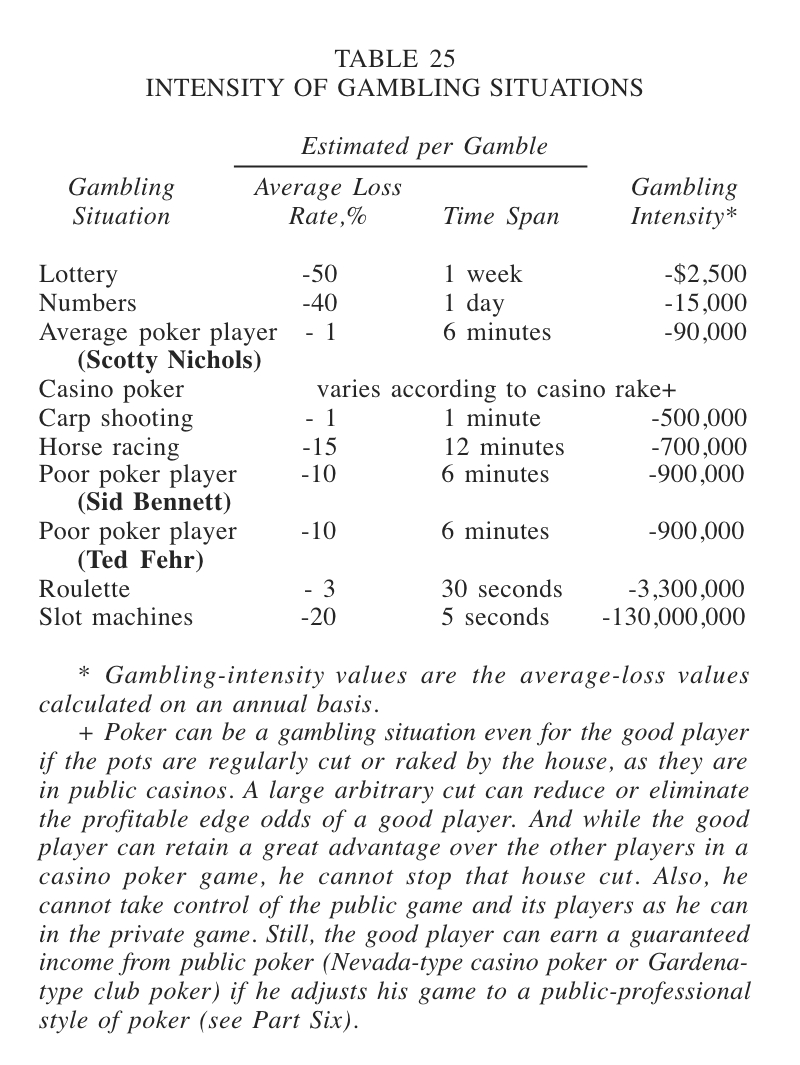Emotional
1.Emotional
Emotional involvement can result from gambling impulses… and most poker players are gamblers.24 When a gambler loses, he keeps on playing in an attempt to recover his losses. When a gambler wins, he forgets his losses and concludes that he has finally learned how to win. The gambler’s subconscious desire to punish or destroy himself emerges as an abiding, irrational optimism. The good player exploits that optimism in gamblers to generate a continuous income for himself.
Some players use poker as a narcotic-like diversion to escape reality. Others develop soul-mate friendships with other players. Such involvement can be emotionally soothing and pleasant— sufficiently so to compensate those losers for many large losses.
_______________________
24Gambling is defined in this course as “The wagering of money at unfavorable odds.” In poker, the good player with favorable edge odds is not gambling, but players with unfavorable edge odds are. Horse players, casino patrons, and losing poker players are gamblers. That definition is consistent with definitions given in: (1) Webster’s Third New International Dictionary—”To wager money or stakes on an uncertain outcome.” The good player’s outcome is certain; therefore, he is not gambling; (2) Funk and Wagnall’s Standard Dictionary— ‘To lose, squander, or dispose of by gaming.” By that definition, the good player is not gambling, but losing players are; and (3) The Random House Dictionary—”Any matter or thing involving risk or hazardous uncertainty.” The good player’s situation is essentially riskless and, therefore, is not a gambling situation.
A gambling situation yields a statistically minus return on money wagered, while a nongambling (investment) situation yields a statistically plus return on money invested…. The intensity of the situation (rate of loss or rate of return) is determined both by the time span of the wager or investment and by the percent loss or the percent return. The intensity of’ gambling and nongambling (investment) situations is illustrated by Tables 24 and 25. The tables, compare the Monday night poker players to other investment and gambling situations: The good poker player is in by far the best investment situation. By contrast, the poor poker player is in one of the worst gambling situations.

